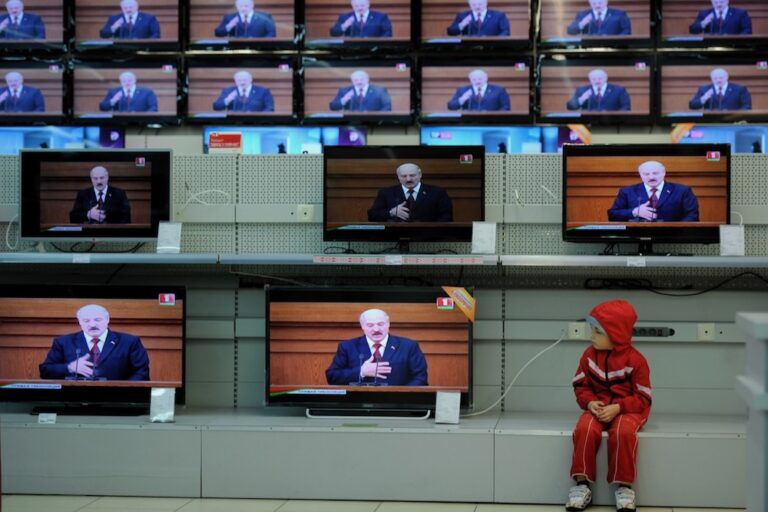Police searched Poczobut's apartment and took the journalist to the prosecutor's office where he was interrogated and arrested, according to a colleague.
UPDATE: Andrzej Poczobut indicted on charges of libelling president (Committee to Protect Journalists, 2 July 2012)
(IPI/IFEX) – VIENNA, June 21, 2012 – Andrzej Poczobut, Poland’s Gazeta Wyborcza correspondent in Belarus, and Polish minority activist there, was arrested on Thursday in the town of Grodno, Belarus.
At 4 pm police searched Andrzej’s apartment and took the journalist to the prosecutor’s office. Andrzej was interrogated and arrested, Igor Bancer, his colleague from the Polish Union in Belarus, the organization banned by the Lukashenko regime, told Gazeta Wyborcza.
Poczobut was charged for allegedly insulting President Alexander Lukashenko in articles published on Belarusian websites. The case against Poczobut is again run by the same state prosecutor in Grodno, Viktor Nikolaievich Morozow.
This time they didn’t charge him for articles in Gazeta Wyborcza, but only on the independent websites Bieloruski partizan and Karta ’97 – to keep the case quieter – says Bancer.
Last July Andrzej Poczobut, after 3 months in jail, was given a suspended sentence of three years in jail for similar alleged “offenses”. His friends are worried that the suspension may be lifted.
The last time that Poczobut was arrested and tried, Gazeta Wyborcza ran a “countdown” of his hardships each day on the front page. The newspaper covered the trial with reports from its Moscow correspondent and from a correspondent from a radio station associated with Gazeta Wyborcza’s publisher.
A suspended sentence means that he may be returned to jail at any time at the full discretion of Lukashenko’s regime if authorities decide that he has again “broken the law” while performing his journalistic work. It effectively constitutes a form of intimidation and an attempt to force Poczobut and Gazeta Wyborcza to engage in self-censorship.
Following his arrest in April 2011, Amnesty International recognized Poczobut as a prisoner of conscience, and the European Union’s High Representative for Foreign Affairs and Security Policy Catherine Ashton and the president of the European Parliament, Jerzy Buzek, had strongly demanded Poczobut’s immediate release.
Pressure against Lukashenko regime’s violations of press freedom and democracy – which included jailing political opponents and silencing journalists – has mounted widely in Europe.
After his former sentence, Poczobut, who is married and the father of an 11-year-old daughter and a 16-month-old son, said he would not cow to judicial blackmail. He indicated that he had no plans to stop writing on Belarus authorities’ violations of human rights and the country’s harsh economic crisis.
He noted that when the state prosecutor’s investigation against him started, he did not for a moment stop his truthful reporting on developments in Belarus.


